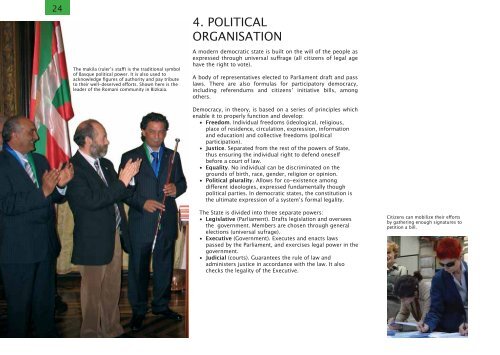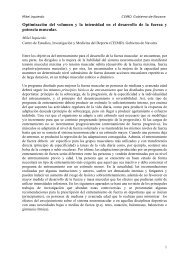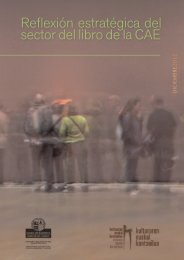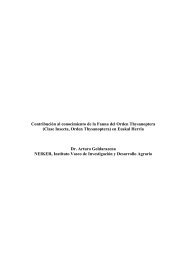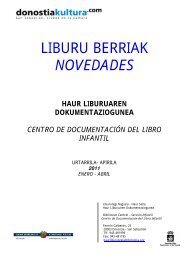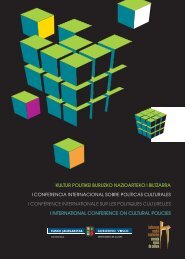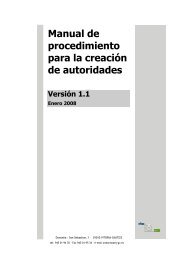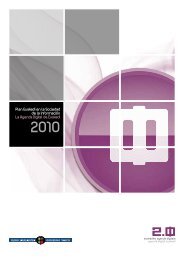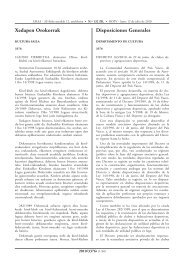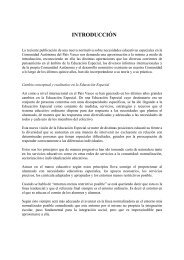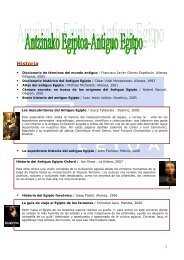The Basque Country (pdf, 4,3Mb) - Kultura Saila - Euskadi.net
The Basque Country (pdf, 4,3Mb) - Kultura Saila - Euskadi.net
The Basque Country (pdf, 4,3Mb) - Kultura Saila - Euskadi.net
Create successful ePaper yourself
Turn your PDF publications into a flip-book with our unique Google optimized e-Paper software.
24<br />
<strong>The</strong> makila (rulerʼs staff) is the traditional symbol<br />
of <strong>Basque</strong> political power. It is also used to<br />
acknowledge figures of authority and pay tribute<br />
to their well-deserved efforts. Shown here is the<br />
leader of the Romani community in Bizkaia.<br />
4. POLITICAL<br />
ORGANISATION<br />
A modern democratic state is built on the will of the people as<br />
expressed through universal suffrage (all citizens of legal age<br />
have the right to vote).<br />
A body of representatives elected to Parliament draft and pass<br />
laws. <strong>The</strong>re are also formulas for participatory democracy,<br />
including referendums and citizensʼ initiative bills, among<br />
others.<br />
Democracy, in theory, is based on a series of principles which<br />
enable it to properly function and develop:<br />
• Freedom. Individual freedoms (ideological, religious,<br />
place of residence, circulation, expression, information<br />
and education) and collective freedoms (political<br />
participation).<br />
• Justice. Separated from the rest of the powers of State,<br />
thus ensuring the individual right to defend oneself<br />
before a court of law.<br />
• Equality. No individual can be discriminated on the<br />
grounds of birth, race, gender, religion or opinion.<br />
• Political plurality. Allows for co-existence among<br />
different ideologies, expressed fundamentally though<br />
political parties. In democratic states, the constitution is<br />
the ultimate expression of a systemʼs formal legality.<br />
<strong>The</strong> State is divided into three separate powers:<br />
• Legislative (Parliament). Drafts legislation and oversees<br />
the government. Members are chosen through general<br />
elections (universal sufrage).<br />
• Executive (Government). Executes and enacts laws<br />
passed by the Parliament, and exercises legal power in the<br />
government.<br />
• Judicial (courts). Guarantees the rule of law and<br />
administers justice in accordance with the law. It also<br />
checks the legality of the Executive.<br />
Citizens can mobilize their efforts<br />
by gathering enough signatures to<br />
petition a bill.


